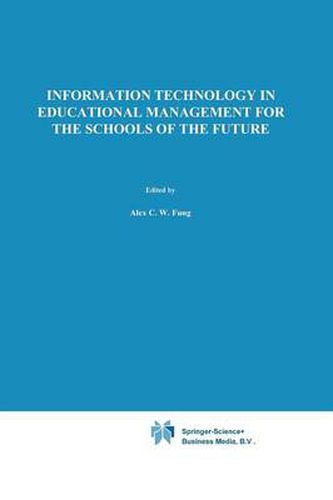Readings Newsletter
Become a Readings Member to make your shopping experience even easier.
Sign in or sign up for free!
You’re not far away from qualifying for FREE standard shipping within Australia
You’ve qualified for FREE standard shipping within Australia
The cart is loading…






This title is printed to order. This book may have been self-published. If so, we cannot guarantee the quality of the content. In the main most books will have gone through the editing process however some may not. We therefore suggest that you be aware of this before ordering this book. If in doubt check either the author or publisher’s details as we are unable to accept any returns unless they are faulty. Please contact us if you have any questions.
This book is for both specialist and generalist. For Information Technology (IT) and Educational Management (EM) researchers, it brings together the latest information and analysis of ITEM projects in eleven countries. But the issues raised by this collection of papers are so important for schools, school systems and the future of education that it is essential reading not only for researchers but also for teachers, administrators and all concerned with the planning and governance of our education systems. New technologies may improve our lives in two ways: by enabling us to do things better (accomplishing what we do already more efficiently) and by enabling us to do better things (accomplishing new things that we were not able to do before). Sometimes doing things better merges into doing better things . Thus in the 19th century the coming of the railway enabled our forbears to accomplish their existing journies in less time and in greater comfort. But it also opened up the prospect of new journies to more distant places, and led ultimately to far-reaching changes in lifestyles in new, commuter settlements far from the old city centres. So it is in the present day with Information Technology in Educational Management. Some of the papers in this volume focus on specialist tasks, for example how to develop a computer-based decision-support system to help those drawing up school timetables. Others address situations in which the power of the technology offers us the potential to change radically what we do.
$9.00 standard shipping within Australia
FREE standard shipping within Australia for orders over $100.00
Express & International shipping calculated at checkout
This title is printed to order. This book may have been self-published. If so, we cannot guarantee the quality of the content. In the main most books will have gone through the editing process however some may not. We therefore suggest that you be aware of this before ordering this book. If in doubt check either the author or publisher’s details as we are unable to accept any returns unless they are faulty. Please contact us if you have any questions.
This book is for both specialist and generalist. For Information Technology (IT) and Educational Management (EM) researchers, it brings together the latest information and analysis of ITEM projects in eleven countries. But the issues raised by this collection of papers are so important for schools, school systems and the future of education that it is essential reading not only for researchers but also for teachers, administrators and all concerned with the planning and governance of our education systems. New technologies may improve our lives in two ways: by enabling us to do things better (accomplishing what we do already more efficiently) and by enabling us to do better things (accomplishing new things that we were not able to do before). Sometimes doing things better merges into doing better things . Thus in the 19th century the coming of the railway enabled our forbears to accomplish their existing journies in less time and in greater comfort. But it also opened up the prospect of new journies to more distant places, and led ultimately to far-reaching changes in lifestyles in new, commuter settlements far from the old city centres. So it is in the present day with Information Technology in Educational Management. Some of the papers in this volume focus on specialist tasks, for example how to develop a computer-based decision-support system to help those drawing up school timetables. Others address situations in which the power of the technology offers us the potential to change radically what we do.